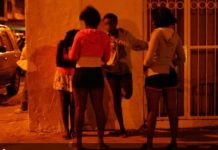The South African government is deeply concerned about threats of renewed violence against foreign nationals and says it is taking steps to deal with it.
There are communities agitating against foreign nationals. A protest march has been planned for the 24th of February 2017, in the Pretoria CBD by the Mamelodi Concerned Residents.
Disgruntlement raised by communities is around competition for jobs, access to economic opportunities and alleged criminal activities involving foreign nationals; these include drug peddling and prostitution.
Speaking in Cape Town, Home Affairs Minister Malusi Gigaba said the “government is deeply concerned about outbreaks of violence, which may result in loss of life and/or damage to property. This is why Cabinet has firmly pronounced on this matter, and has expressed full support to ourselves and the Justice, Crime Prevention and Security (JCPS) cluster to move speedily in resolving these issues to the satisfaction of communities.”
According to Gigaba the government has directed all security officials to be visible in communities and to objectively deal with criminality, regardless of whether it is committed by a South African or a foreign national.
Xenophobic violence is not new in South Africa. The country first experienced violence in 2008, with attacks on foreign nationals mainly in Gauteng (Alexandra, Diepsloot and Tembisa) and the Western Cape.
The 2008 attacks were investigated by the South African Human Rights Commission (SAHRC). According to the SAHRC, among the reasons for the violence were the following:
- Poor relations between local residents and key officials dealing with informal settlements,
- Corruption and indifference of leaders,
- Police unable to deal with attacks, and,
- Capacity problems, for those providing effective remedy and promotion of access to justice.
In 2015, another wave of attacks was seen in KwaZulu-Natal and Gauteng. It was sparked by a labour dispute over the employment of foreign nationals at the KwaJeena Store in Isipingo.













